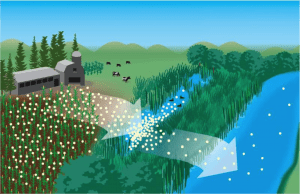SOIL SAMPLING-AN INDEX TO SOIL FERTILITY
(Muhammad Tayyab*, Muhammad Nasir, Hafiz Muhammad Arslan Abid, Sajjad Manzoor)
University of Agriculture Faisalabad
A soil sample consists of different sub soil samples which are collected from different locations and depths of the same having same crops history and other management practices.
Sampling Time
- At any soil condition you should take soil sample, but this thing should be keep in mind soil sampling is prohibited after the application of fertilizers and nutrients.
- During crop growth period the soil sample can be taken up that helps in determination nutrient uptake by the plants.
- It plays significant role to take soil samples after year to year with reference to different crop nutrition.
Sampling Depth
In general the soil sample should be taken up to about 20 cm soil depth. Because Nitrogen (N), Phosphorus (P) and other micronutrients are available at this depth related to crop nutrients. For irrigated areas this can be about 60-100 cm soil depth, especially in case of Nitrate leaching. Soil samples are taken at different soil depth-wise.
Sampling Tools
There are the general tools which can be used for soil sampling
- Auger
- Shovels and Trowels
- Spade
For last case you should make V-Shape with spade the take 15-20 cm soil sample
Material Required at Field Level
Soil sample should be collected in plastic bags and stainless steel or aluminum.
Samples should be kept in cool place for long analysis.
Mention soil depth
Date
Field area location
Farmer’s Name
CNIC Farmer’s No.
Crop Name
Take the samples from between the rows if crop is grown on rows not take from where fertilizer is placed. Then make a composite sample for analysis and apply the recommended fertilizers & amendments after it according to crop requirement.








